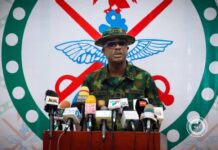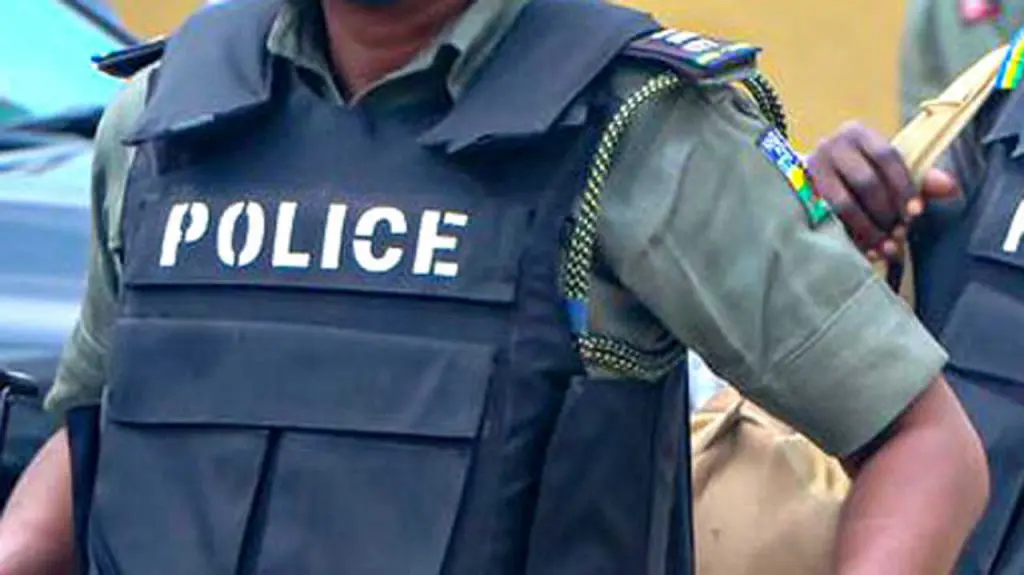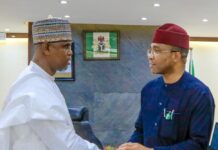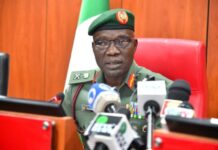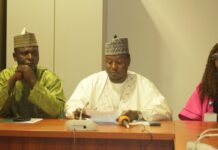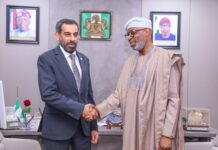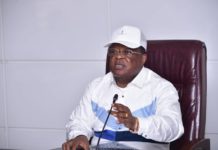By Tony Ekata
Today is Youth Day in South Africa. It’s a public holiday to commemorate the 1976 Soweto Uprising. On June 16, 1976, young South African students in Soweto secondary schools said ENOUGH IS ENOUGH to the brutal Apartheid masters who were forcing them to be taught in Afrikaans, the language of the OPPRESSORS! As usual, the apartheid regime rolled out its tanks to intimidate the youngsters.
They didn’t budge. A revolution was born. So, the police started shooting them and killed 174 Blacks in the riots that followed. On the day of the uprising, June 16, Hector Pieterson, a 12-yr-old pupil was shot dead. A news photograph of the mortally wounded Pieterson being carried by another Soweto resident while his sister ran next to them was published around the world.
That photo escalated global awareness about the inhumanity of the apartheid regime and fast-tracked the liberation of South Africans. Forces outside South Africa mobilised resources for South Africans to fight the apartheid monster. The Nigerian Head of State at the time, Lt. General Olusegun Obasanjo, took scores of South African youths to Nigeria and gave them free education. Apartheid did not end in 1976. Would it have taken earlier than 1994 for South Africans to have their first black president if there had been social media in 1976?
When PEOPLE POWER is activated, STRUCTURES crumble. It happened in South Africa. It happened in Pakistan. It happened in France. It happened in Ukraine.
Volodomyr Zelensky, a lawyer and comedian, was a political outsider before he became Ukrainian president. His political party, Servant of the People , named after a TV series in which he played the role of Ukrainian president, was formed in 2018 with no structures anywhere except on social media where he was considered the frontrunner in opinion polls after he declared his intention to run for president in December 2018. In 2019, he contested against political juggernaut, incumbent President Petro Poroshenko, and won with 73.23 percent.
Not only that, but his party also won a landslide victory in the snap legislative election held shortly after his inauguration as president.
What was his trump card? He positioned himself as an anti-establishment and anti-corruption figure – a hot selling point for a people already sick and tired of corruption in high places. Does that ring a bell? Nobody gave Zelensky, a comedian, a chance against the onslaught of Russia’s hard nut former KGB boss Vladimir Putin.
He has led his people in the battle against Putin from the front, unlike some generals who would be bunker-bound at the threat of rag tag bandits.
Imran Khan, the renowned Pakistani cricket star had no significant political structure when he was voted Prime Minister in 2018. He rode to power on the populist approach that emphasizes the idea of juxtaposing the people against the elite.
Emmanuel Macron was a banker and civil servant before he became president. His only political experience was as a senior adviser to President Francois Hollande and later as Minister of the Economy, Industry and Digital Affairs between 2014 and 2016. In April 2016, he formed the En Marchel centrist political movement. By May 2017, he contested and was elected president, beating serial presidential contestant and seasoned politician Marine Le Pen with 66.1 percent of the vote. He was only 39 years old, which made him the youngest president in the history of France.
A month later, in the June 2017 French legislative election, Macron’s party, renamed La République En Marche (LREM), secured a majority in the National Assembly. Those legislators belonged to the traditional parties with decades of structure.
They saw the need to realign with progressive forces and did the needful. That is how rational human beings behave.
Now, the response of the naysayers to the above is quite predictable. They are going to say, ‘Nigeria is different!’. Exactly! Nigeria is the poverty capital of the world, courtesy the same grandfathers that will not allow their children and grandchildren with modern ideas to lead.
Those basing their 2023 permutations on stereotypical variables should hear this: What happened in Soweto in June 1976 happened at the Lekki Toll Gate in Lagos, Nigeria, in October 2020.
Nigerian youths dared security forces and spoke in one voice, amplified by the social media, to say enough is enough to the mindless killing of youths on flimsy grounds. #ENDSars was born! It reverberated around the world. It rekindled separatist agitations.
It may not have achieved its purpose for various reasons. But it would be foolhardy to presume that #ENDSars is dead. We can already see its reincarnation in the OBIdient Movement .
The choice for the electorate in 2023 is not between Atiku, Tinubu and Obi. It is between continuing to live in bondage and making a fresh start.
It is between disgruntled Nigerians and the hegemonic predators. It is between purveyors of the oppressive status quo and hitherto apathetic youths and students bent on taking the country back from the leaders of yesterday and today, using the people’s money to pave the way for them and their children and grandchildren to remain the leaders of tomorrow.
For those saying social media cannot elect a president, they are very correct. But at the same time, they are missing the point. It’s the people that will elect a president using social media to get people to register and change the perception of registered voters.
Is that not happening already? That you are in PDP or APC does not mean you must vote for those parties. Party membership cards are not demanded at polling booths before the casting of ballots. Buhari rode partly on social media hype as MR INTEGRITY to Aso Rock in 2015. It was on social media the hooey that NEPA bill is better than PhD was sold and bought.
Millions of votes cast for Buhari in 2015 by registered voters were not for the APC.
They were for Buhari based on the perception created that he was the long-awaited messiah. They were protest votes against PDP and GEJ and their perceived 16 wasted years and cluelessness.
The unprecedented interest in who becomes Nigeria’s next president is symbolised by the OBIdient Movement. Whether it succeeds or fails in 2023 is not the issue. For sure, Nigeria is entering a new era of political activism.
If Obi fails in 2023, it is Nigeria that will fail – again! It is an unfathomable irony that Nigerians agree that there is a dire need for a redirection of the country but want to leave the reins in the hands of morally deficient operators who contributed actively to steering it into the present morass.
So, if you want Nigeria to win, help build the superstructure needed for the victory. Talk to your friends, neighbours and family members. Let them know the absurdity in taking money from politicians to make their children and grandchildren slaves to the politicians’ children and grandchildren. Nigeria is made up of families, not political structures!
Tony Ekata is a South Africa-based communications consultant and public affairs analyst.










